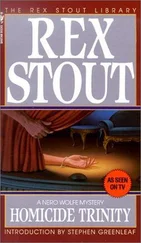“In the Indus Valley, toward Peshawar. Our assumption is the Chinese were trying to loft one over the mountains toward Alma Ata or Tashkent. I think the Paks misunderstood.”
The President started to laugh, uncontrollably. “Misunderstood?” he gurgled. “Jesus. I’ll bet they did.” The President felt woozy again, his skull echoing, his brain rubbery.
“Misunderstood badly, sir. They’ve launched aircraft toward Delhi.”
The President focused sharply and stopped laughing. “The Pakistanis have nuclear weapons.” It was not a question.
“A dozen, maybe more. Elementary devices. Gravity bombs. They have no missile-delivery system.”
“So we have to assume those are headed for New Delhi?”
“The Indians seem to be making that assumption. The Indians and the Paks aren’t exactly friends. India has placed fighter interceptors in the air. And tactical bombers.”
“And they also have nukes.”
“That we know, sir.”
“Good God, it’s like a damned summer cold. One sneeze and everybody catches it.”
The President closed his eyes and massaged the bridge of his nose between two nervous fingers. “Almost everybody,” Icarus said bluntly. “What’s that supposed to mean, other than another shot at my manhood?” the President snapped back.
“It means it’s time to sneeze. Everybody’s snorting except us, the Brits, and the French. The Brits, as usual, are waiting for us, poor fools. The French, I’d guess, don’t know which way to point their missiles—at us or the Soviets.”
“Everybody?”
“The Israelis,” Icarus acknowledged.
“The Israelis,” the President repeated.
“Well, what would you expect the Israelis to do? They’ve got planes flying in every fucking direction. They sent us one message: stay out of our way.”
The President’s head throbbed. The noise did not help. He glanced over at the sprung door. Bluish-white tongues of fire, jets from acetylene torches on the other side, sliced steadily around the remaining hinges. He could hear a muffled commotion and occasionally a muted pop-pop-pop, as if light globes were bursting.
“Why don’t they just blow the damn thing?” the President snapped at the duty officer.
“We don’t want the briefest communication outage now, sir. They’re almost through. The Secretary of State’s on the other side.”
“I know he is,” the President said bleakly. He wanted to see the Secretary about as badly as he wanted General Patton reincarnated in the Situation Room. In fact, in their brief conversation a few moments ago, the Secretary had sounded like General Patton, ready to swoop in to save the civilized world.
The door gave way with an unexpectedly quiet thump and half a dozen Secret Servicemen swept through, their stubby Italian machine guns tilted toward the ceiling. The Secretary strode through the doorway purposefully, in a tuxedo, followed by a handful of combat-dressed marines with carbines. The President suppressed a grim chuckle.
“Looks like all the burglars are coming through locked doors tonight, huh?” he greeted the Secretary.
The Secretary started to salute and caught himself in mid-gesture. “What was that, Mr. President?” he asked, confused by the half-caustic reference to his own description of the Soviets.
“Nothing.” The President shrugged. “What’s it like out there?”
“The best of worlds, the worst of worlds,” the Secretary replied very seriously.
Oh, Christ, the President thought. “Can you be a little more descriptive?”
“The buildings near here are surprisingly intact. The White House, not exactly a hardened facility, is damaged but standing. Windows broken, lots of flotsam kicking around. Your helicopter was blown into the trees along the East fence. I’ve brought in another. Andrews is six minutes away. Now that you’ve launched the second attack, I’d suggest we move there immediately and board the command plane.”
The staccato popping noise, much louder now, caromed sharply through the open door. The marines stiffened and turned. The President’s body jerked, his nerves shattering like crystal.
“What the hell was that?!”
“We are having some minor trouble above ground,” the Secretary replied matter-of-factly. “The civilian population is somewhat panicky.”
“What do you mean, somewhat panicky?”
“It’s controllable. I’ve deployed two companies of marines, as well as the Secret Service and normal guards, on the White House grounds. Some of the civilians are coming over the fence.”
The President heaved a great sigh.
“A nuclear weapon has exploded in your nation’s capital, Mr. President,” the Secretary said, his words suddenly jaggedly edged. The President saw a glint, a glint he had seen before, in the Secretary’s eyes. He looked at his Cabinet leader closely and saw, for the first time, why he was so intensely disliked by so many people in and out of his administration.
“Frankly,” the Secretary continued, “I’m surprised you didn’t launch before the weapon landed. The opportunity is golden. But not everyone is talcing it as calmly as you.”
“Calmly,” the President said. “Mr. Secretary, the world is acting like an hysterical medieval nunnery. Everyone has gone mad. The only calmness I detect anywhere is in Moscow, I’m surprised to hear myself say.”
“Calmness, foolishness,” the Secretary said. “The Soviets’ uncertainty has proved to be our opportunity. It has allowed us to unload our silos in the equivalent of a first strike. With moral justification and without the condemnation of history. It will alter the balance of power for centuries.”
“Mr. Secretary, your trousers are bulging,” the President said without smiling. “It is not becoming to a man of your stature.”
The muscles flexed in the Secretary’s face. He said nothing.
“I haven’t launched a second attack yet.”
The Secretary’s face turned grotesque. He took two quite military strides toward the President, looming up against him. The two men stood jaw to jaw, one in his bathrobe, the other in cummerbund and black tie. Neither budged.
“Mr. President, this is…” the Secretary sputtered. “This is…treasonous!”
“Sir,” the President replied evenly, “the Vice-President is in Sacramento, which has a SAC base in its suburbs. We have not been able to contact the helicopter that attempted to remove him. The Speaker inopportunely chose this time to visit Peking. The president pro tem of the Senate lives in an apartment at the Shoreham Hotel in Northwest Washington. You may be, as they say, a heartbeat away from the presidency. I am, however, finding you uncomfortably close at the moment. I do not need another hysterical nun.”
The Secretary’s hands opened and closed slowly at his sides. He stared in disbelief and condescension at the President.
“Mr. Secretary, I suggest that you turn around, sit down, and allow me to continue with my duties. Omaha has about six minutes.”
Slowly the Secretary of State backed away. He lowered himself into a tattered chair, training his glazed stare on the President. The President turned away from him and sat down again, speaking into the phone he had been holding loosely at his side.
“General, sorry about the brief delay. The Secretary of State has arrived to assist me. Give me an update, please.”
“We’ve had a detonation in Damascus. And several in southern Africa. We hadn’t been paying much attention to the southern hemisphere. Only the South Africans have weapons there. One of the explosions, however, was inside South Africa.”
“That’s one way to solve apartheid.”
“Everyone seems to be solving their problems, sir.”
“Yes.”
Читать дальше












